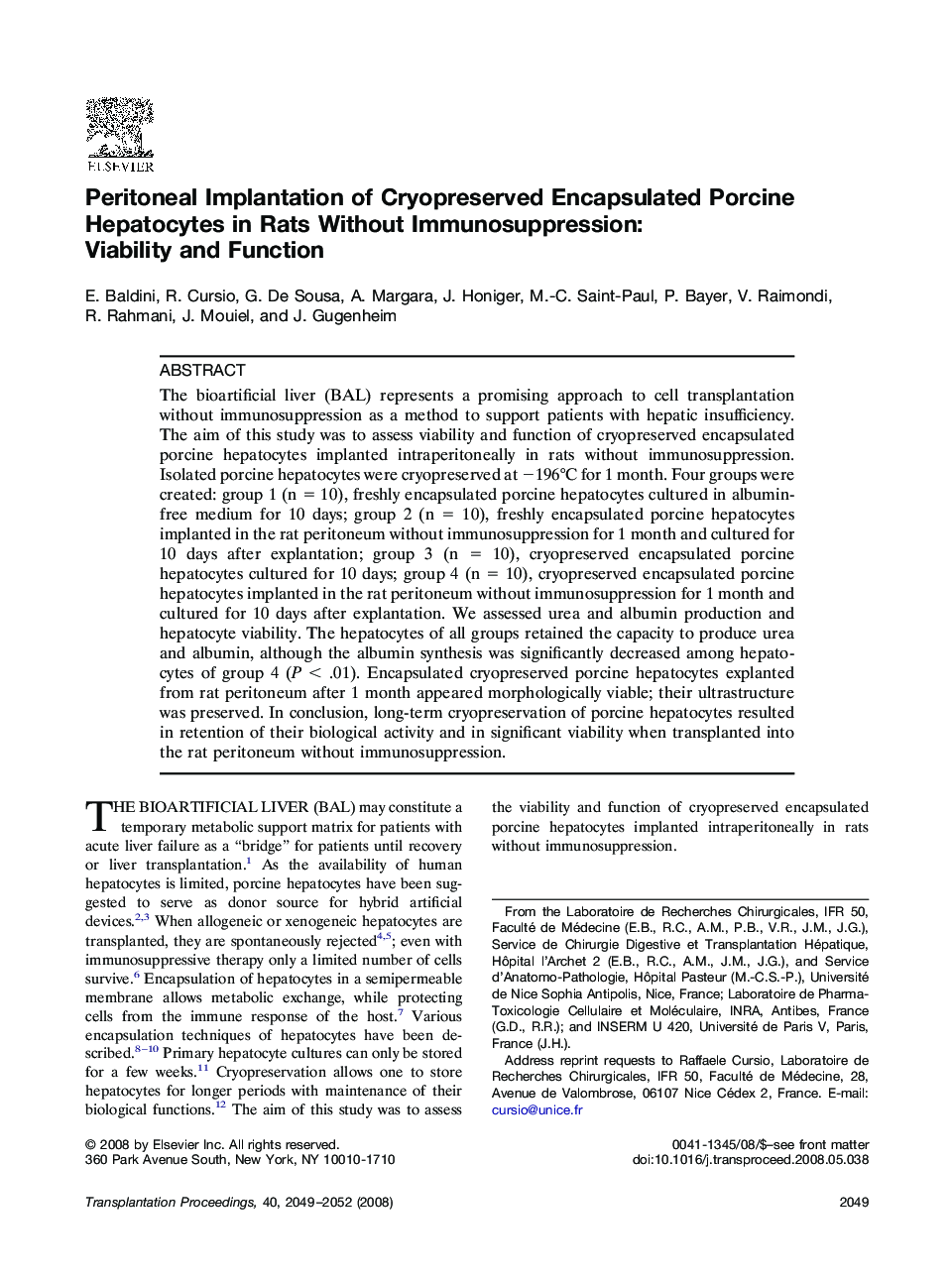| Article ID | Journal | Published Year | Pages | File Type |
|---|---|---|---|---|
| 4260324 | Transplantation Proceedings | 2008 | 4 Pages |
Abstract
The bioartificial liver (BAL) represents a promising approach to cell transplantation without immunosuppression as a method to support patients with hepatic insufficiency. The aim of this study was to assess viability and function of cryopreserved encapsulated porcine hepatocytes implanted intraperitoneally in rats without immunosuppression. Isolated porcine hepatocytes were cryopreserved at â196°C for 1 month. Four groups were created: group 1 (n = 10), freshly encapsulated porcine hepatocytes cultured in albumin-free medium for 10 days; group 2 (n = 10), freshly encapsulated porcine hepatocytes implanted in the rat peritoneum without immunosuppression for 1 month and cultured for 10 days after explantation; group 3 (n = 10), cryopreserved encapsulated porcine hepatocytes cultured for 10 days; group 4 (n = 10), cryopreserved encapsulated porcine hepatocytes implanted in the rat peritoneum without immunosuppression for 1 month and cultured for 10 days after explantation. We assessed urea and albumin production and hepatocyte viability. The hepatocytes of all groups retained the capacity to produce urea and albumin, although the albumin synthesis was significantly decreased among hepatocytes of group 4 (P < .01). Encapsulated cryopreserved porcine hepatocytes explanted from rat peritoneum after 1 month appeared morphologically viable; their ultrastructure was preserved. In conclusion, long-term cryopreservation of porcine hepatocytes resulted in retention of their biological activity and in significant viability when transplanted into the rat peritoneum without immunosuppression.
Related Topics
Health Sciences
Medicine and Dentistry
Surgery
Authors
E. Baldini, R. Cursio, G. De Sousa, A. Margara, J. Honiger, M.-C. Saint-Paul, P. Bayer, V. Raimondi, R. Rahmani, J. Mouiel, J. Gugenheim,
